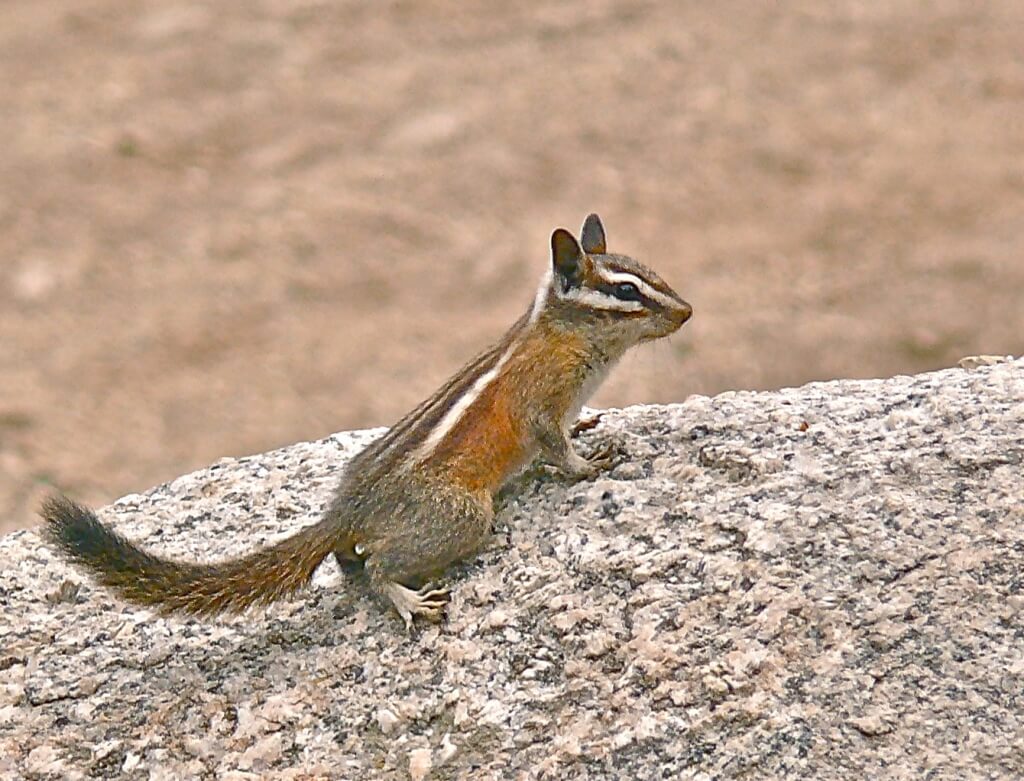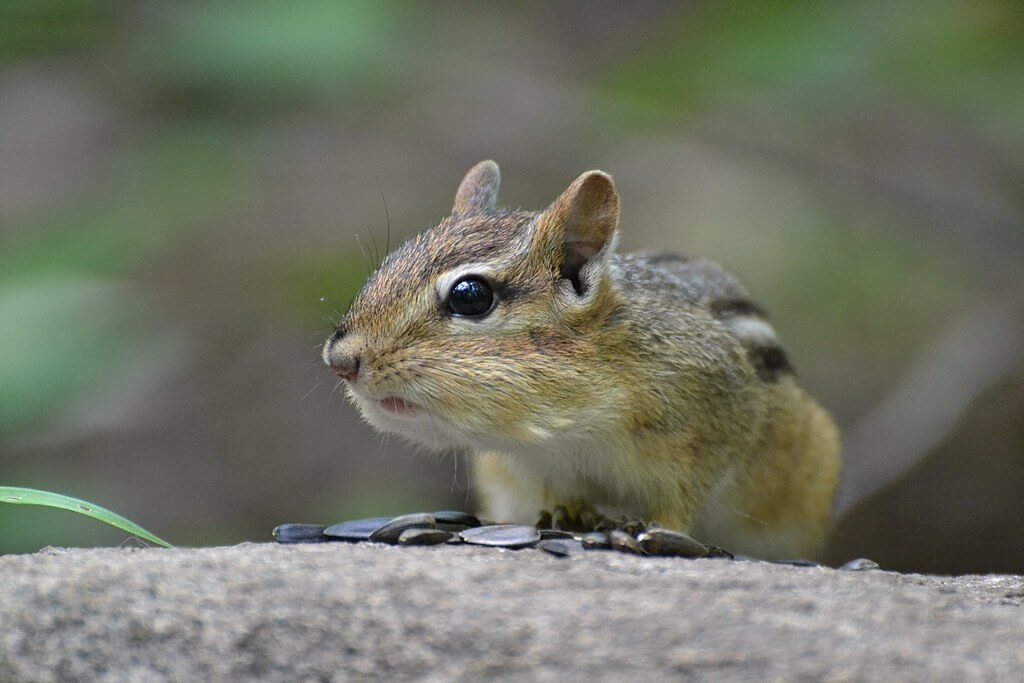Effective Methods for Getting Rid of Chipmunks Humanely
Remember how Alvin and his pals made you laugh in the movies? Well, their real-life counterparts aren’t as amusing, especially when they’re wreaking havoc in your beautiful yard. Trust me, I’ve been there; these tiny creatures can do a ton of damage to gardens and homes.
In this article, we’ll explore practical ways such as using repellents or constructing barriers to humanely deal with chipmunk infestations while keeping our yards intact. Let’s dive right into effective solutions for this bushy-tailed problem!
Key Takeaways
- Identify the signs of a chipmunk infestation, such as burrow entrances and gnaw marks on wooden structures.
- Use effective methods like traps, repellents, barriers, aversive flowers, and repelling scents to remove chipmunks from your property.
- Take preventive measures like securing bird feeders, maintaining a clean yard, and removing attractive food sources to prevent chipmunk infestations.
Identifying a Chipmunk Infestation
To identify a chipmunk infestation, look for the appearance and signs of these small rodents. Chipmunks are typically small, measuring around 5-6 inches in length with distinctive stripes on their backs.
They have short legs and bushy tails. In terms of signs, you may notice burrow entrances in your yard or garden, as chipmunks create complex tunnel systems underground. Additionally, they leave behind small holes where they store food for the winter months.
Appearance of Chipmunks
Chipmunks flaunt unique physical traits that set them apart from other small rodents. Their bodies boast a warm brown fur coat adorned with conspicuous white stripes, bordered by dark brown or black lines running from their heads to their backs.
These agile creatures move at lightning speed, making them hard to spot at times. As they dart in and out of sight, they proudly lift their short tails high in the air. These distinguishing features are what make chipmunks instantly recognizable when you come across one around your property or in the wild.
Signs of Chipmunks
Chipmunks are clever critters, but they leave noticeable signs of their presence. You might spot small holes in your yard – these are the entrances to their burrow systems. These tunnels measure about two to three inches wide and lie flush with the ground, ensuring no apparent mounds of dirt can give them away.

You’ll also notice chewed plants or stolen fruits from your garden, a clear sign that chipmunks have been feasting. Their paws are perfect for grabbing fruit and nuts, so check for missing produce regularly.
Another major sign includes finding piles of rocks or dirt outside chipmunk burrows as well as gnaw marks on wooden structures like decks and patios around your home.
Potential Damage Caused by Chipmunks
Chipmunks are cute critters but their damage to home gardens can be significant. They devour plants, gnaw bulbs, and undermine the greenery with elaborate tunnel systems. These tunnels can extend deep under yards and even homes posing a risk to foundations and structures.
In addition to garden havoc, chipmunks also target bird feeders as they have a soft spot for seeds and nuts. Bird feeders offer chipmunks an unlimited food supply leading to more infestations.
Furthermore, these small creatures can enter houses through various entry points causing further destruction indoors such as chewing wires or making nests in your attic insulation.
Effective Methods to Remove Chipmunks
To effectively remove chipmunks, you can utilize traps or repellants, build barriers, plant aversive flowers, and use repelling scents.
Using Traps or Repellants
When dealing with a chipmunk infestation, there are effective methods you can use to remove them. Here are some options to consider:
- Traps: Set up small traps with wire mesh to catch and relocate chipmunks. Bait the traps with peanut butter on the trigger plate to attract them.
- Repellants: Use repellents that chipmunks find unpleasant to discourage them from entering your property. Some effective options include scents like peppermint, citrus, cinnamon, eucalyptus, garlic, cayenne, and chili powder.
- Homemade Repellent: Create a DIY concoction using Lysol, Epsom salt, and water to make a repellent spray that can be applied around problem areas.
- Human Hair or Predator Urine: Sprinkle human hair or predator urine around the perimeter of your garden to create an odor that chipmunks find off-putting.
Building Barriers
To prevent chipmunks from invading your home and causing damage, building barriers can be an effective solution. Here are some methods to consider:
- Burying L-shaped barriers made of 1/4-inch hardware cloth around the foundation of your home.
- Creating plant – free gravel borders around areas where chipmunks may enter.
- Placing wire mesh or screens over openings such as vents, chimneys, or crawl spaces to block chipmunks’ access.
- Using bulb cages or Vole King Plant Baskets to protect plants and bulbs from being dug up by chipmunks.
- Installing wire mesh fencing around gardens or flowerbeds to deter chipmunks from digging and foraging.
Planting Aversive Flowers
Planting aversive flowers can be an effective method to deter chipmunks from your garden. Here are some flowers you can consider planting to repel chipmunks:
- Daffodils: Chipmunks dislike the smell of daffodils, making them a great deterrent.
- Allium: The strong scent of allium flowers is known to keep chipmunks away.
- Marigolds: The pungent odor of marigold flowers acts as a natural repellent for chipmunks.
- Lavender: The aroma of lavender is disliked by chipmunks and can help protect your plants.
- Sage: Planting sage in your garden can deter not only chipmunks but also other pests.
Utilizing Repelling Scents
When dealing with a chipmunk infestation, utilizing repelling scents can be an effective method. Here are some scents that chipmunks dislike:
- Peppermint
- Citrus
- Cinnamon
- Eucalyptus
- Garlic
- Cayenne pepper
- Chili powder
Protective Measures to Prevent Chipmunk Infestations
To prevent chipmunk infestations, secure your bird feeders, maintain a clean yard, and remove attractive food sources.

Secure Your Bird Feeders
I make sure to secure my bird feeders to prevent chipmunks from raiding them. Chipmunks are attracted to the seeds spilled from the feeders, so it’s important to take measures against them.
I choose feeders with squirrel-proof mechanisms, such as weight-activated perches that close off access when a heavier animal like a chipmunk tries to sit on it. Regularly cleaning up spilled seeds around the feeder is also key in keeping chipmunks away.
By securing my bird feeders and being mindful of seed spillage, I can help protect both my feathered friends and my garden from chipmunk damage.
Maintain a Clean Yard
I make it a priority to maintain a clean yard as part of my efforts to prevent chipmunk infestations. By keeping my yard free from clutter and debris, I eliminate hiding places and minimize potential shelters for chipmunks.
Regularly mowing the lawn and trimming shrubs not only keeps my yard tidy but also removes potential sources of food and shelter for these rodents. Additionally, I ensure that fallen fruit, birdseed, and pet food are promptly cleaned up so as not to attract chipmunks.
With a clean yard, I create an environment that is less appealing to chipmunks and reduces the risk of infestation in my home.
Remove Attractive Food Sources
Chipmunks are attracted to food sources in yards, so it’s crucial to remove any tempting treats. Clean up fallen fruit and secure garbage cans tightly to prevent access. Also, keep bird feeders elevated and consider using squirrel-proof designs.
By eliminating these attractive food sources, you can discourage chipmunks from invading your yard and causing damage.
When to Seek Professional Help
I recommend seeking professional help when dealing with a chipmunk infestation that persists despite your best efforts. Consulting with a professional pest control company can provide you with the expertise and resources needed to effectively eliminate the problem.
Companies like Terminix and Orkin are highly recommended for their rodent control services. They offer free inspections to assess the severity of the infestation and can provide customized pest control solutions tailored to your specific needs.
If humane methods have failed or if you prefer lethal methods, these professionals can safely remove chipmunks from your property using appropriate techniques. Don’t hesitate to reach out to them for assistance in getting rid of chipmunks once and for all.
Conclusion
In conclusion, getting rid of chipmunks requires a combination of proactive measures and effective methods. By identifying signs of infestation, implementing barriers and repellents, and practicing preventive measures, you can successfully eliminate chipmunks from your yard.
Remember to consider ethical trapping and relocation options while ensuring compliance with local laws. With these strategies in place, you can enjoy a chipmunk-free environment and protect your home and garden from potential damage.
FAQs
1. What are some effective methods for getting rid of chipmunks?
Some effective methods for getting rid of chipmunks include using live traps, setting up sonic or ultrasonic devices, installing fences or barriers, and removing their food sources.
2. How do live traps work to remove chipmunks from my property?
Live traps are designed to capture chipmunks without causing harm. They typically consist of a small cage with a trigger mechanism that closes the door when the chipmunk enters. Once trapped, you can release them in a different location away from your property.
3. Can I use repellents to deter chipmunks?
Yes, there are various natural repellents available that can help deter chipmunks from entering your property. Some common examples include using strong-smelling substances like peppermint oil or planting certain plants such as daffodils or marigolds that repel them.
4. Are there any precautions I should take when attempting to get rid of chipmunks?
When trying to get rid of chipmunks, it is important to avoid harming other wildlife or pets unintentionally. It is also recommended to block off entry points and seal any potential openings around your home’s foundation to prevent future infestations.
